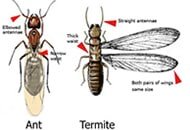EVERYTHING YOU NEED TO KNOW ABOUT TERMITES
CONSUMER TERMITE CONTROL INC.
TERMITES! THE VERY WORD STRIKES FEAR INTO THE HEARTS OF HOMEOWNERS.
Termite control is definitely not a do-it-yourself project. Fortunately, pest control professionals have the tools to stop termites from damaging a home and protect the home from future attacks. Here is the Termite Distribution map of USA.
Although there are thousands of known termite species, there are only a few that are of concern to the professional applicator. These can be broken down into two main varieties: Termites and Subterranean Termites.
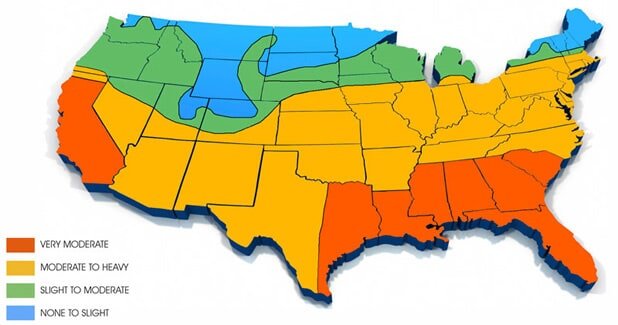
TERMITES
There are many species of structural infesting termites, and each one has developed effective ways to get at and attack the wood in your home. Preventing termite attack and killing these termites is vital if you want to avoid the damage they cause. Termites live in colonies, which are usually underground, although sometimes they can be within your home itself.
The "worker" termite forages outside of the colony for food. It consumes the wood creating "galleries" and then returns to feed the rest of the colony. Tell-tale signs of termites include mud (or shelter) tubes on foundation walls, termite swarms, and of course, infested wood members.
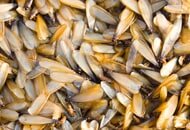
KING & QUEEN
In a young colony, the king and the queen are the actively reproducing termites in the colony. Their only function is the production of the eggs.
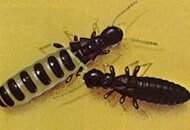
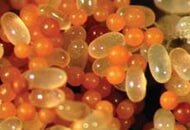
EGGS
The tiny termite egg is almost transparent. During the incubation period, the egg is groomed and tended by workers. The larva hatches from the egg and is about the same size.
WORKER
This termite is the one which forages from the nest to the wood supply and returns with food for the colony.
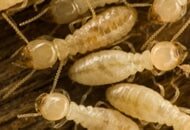
SOLDIER
Defender of the colony, the soldier termite, develops a long, armored head and mandibles capable of cutting an enemy ant in half. The soldier also sounds the alarm by banging his head against the side of a tunnel.
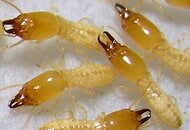
NYMPHS
When NYMPHS reach maturity and become swarmers (kings and queens), they all leave the colony at about the same time, usually in Spring or Fall. The swarmers fly very poorly, and most of them flutter for only a few yards before falling to the ground.
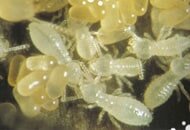
SWARMERS
When the short flight is finished, the swarmers drop their wings, and the males begin a frenzied search for compatible mates. Because the swarmers are exposed and are prey to predator birds and insects, very few ever survive to establish a new colony.
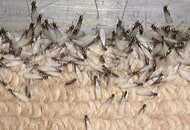
EARTH TUBES
Earth tubes between the soil and some wooden structure under the house is a sure sign of subterranean termites. These tubes can go up the foundation wall, along with plumbing, or directly from the soil to the wood.
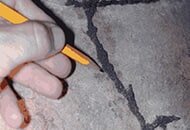
INFESTATION
We advise you to seek local help if an infestation has been found. A professional treatment may be needed.
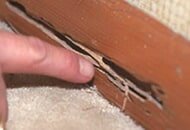
DIFFERENCE
DON'T BE CONFUSED: KNOW THE DANGEROUS DIFFERENCE
Termites start swarming around March first and continue until the 1st or 2nd week of May. Their actions are entirely based upon the weather. When these insects stop their spring mating, ants start the same cycle all over again.
